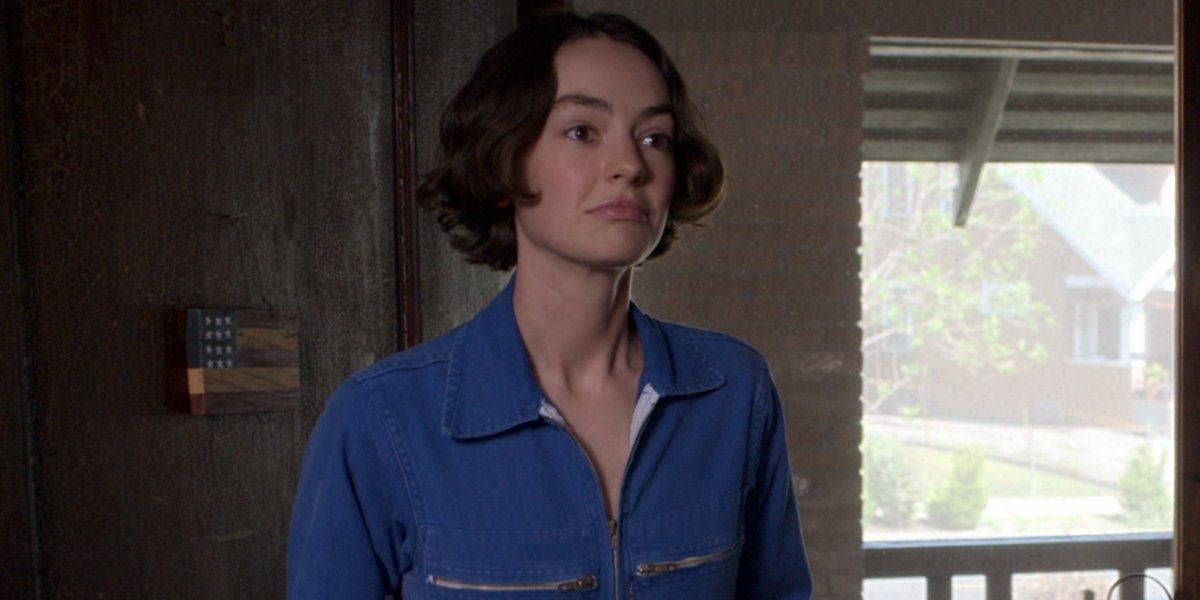Netflix’s show Atypical is progressive in many ways. It features a main character with Autism Spectrum Disorder, it explores what it’s like to live with parents who have marital issues, it features a queer storyline and it sometimes touches on class issues. But there are often moments when it swings and misses, not quite hitting the mark.
The title of the show is a clever one, and applies to many of its situations–but in its an attempt to be cutting-edge, does the show sometimes overlook things that it is over-simplifying, or under-representing? Here are five reasons why the show is challenging the mainstream, matched with five ways it challenges it.
Doesn’t: Setting Is Idyllic

The lead character, Sam, lives with his mother, father, and sister in a well-kept middle to upper-middle-class suburb. They have a clean, spacious, charming home, are seen eating full and robust meals together, are all well-dressed (particularly daughter and mother, who are both on-trend dressers) and talk of therapists and medical care as if finances are a non-issue.
The backdrop of the show, therefor, has stayed with the tradition of other teen shows and movies that use suburban middle-class as a stage for working out everyday teen issues.
Does: Lead Character Has ASD

The main argue point for this show being unique is, of course, that it’s leading character, Sam has ASD–or Autism Spectrum Disorder. We follow a seemingly unremarkable family through its everyday life, becoming more and more aware of what makes them different from the norm through contrast to Sam’s experience with that of those around him.
The show is smart in its execution of this narrative, using common daily occurrences most people go through without thinking and revealing Sam to have conflicts in the same situation. For people familiar, it arguably spells things out too much. But if the show aims to get completely unfamiliar to open their eyes, the show does a good job of gently introducing the subject.
Doesn’t: Actor Playing Sam Does Not Have ASD

The lead character who plays Sam does not have ASD. Many have taken issue with this, and it is in a similar vein to other complaints these days relating to under-represented peoples being played by over-represented actors–in a way, ‘atypical’ people being played by ‘typicals’.
A good example of this being done well is through the character is Isaac in Netflix’s Sex Education. Many would argue that actors are called actors for a reason–one should be able to play whoever they are capable of. However, there is the opposing argument that if you are trying to represent a minority in the first place, why would you not cast a minority? ‘Typicals’, as usual, are the most visible people.
Does: Involves Supporting Actors Who Have ASD

The show opts to include quite a few actors who have ASD in its later seasons.
Whether or not this was in response to complaints regarding Sam not being played by a person with ASD is hard to know, but either way, it’s great to see ASD represented by people who experience it. Sam ends up joining a group for people experiencing ASD, and this particular setting allows the audience to witness people on the spectrum from numerous perspectives, which is important because it is a varying experience and it would be a mistake to assume that Sam encompasses what ASD entails.
Doesn’t: Takes Middle-Class Comfort For Granted

As has been established, Sam’s family is not short on creature comforts in their life. While it’s valid for the characters to struggle through their issues, it is admittedly a bit strange to see their struggles play out in their cozy, cushioned lives–everything is subjective, but it does feel as though some privilege goes un-acknowledged.
Sam’s sister, Casey, does date a working-class boy–made evident through references to his rusty car, his low-life dad and his shabby clothes–but this is never really discussed between the two. The one instance where Stacey recognizes their difference is dealt with particularly strangely, considering the fact that she visits her boyfriend’s lower-class dad while she is wearing, ironically, a blue-collar jump-suit—a trend derived from making manual-labor clothes into fast-fashion.
Does: Includes Queer Storylines

It’s a slow, slow narrative, but the show teases at a possible queer relationship and eventually reveals that Casey is romantically interested in her friend Izzie. It’s an exciting storyline, and it does well by also including an interesting back-story for Izzie. Casey is a queer character in general, although it’s not exactly discussed.
From the get-go, we see Casey as a symbol of strength in the family. She protects Sam and is also physically fit on top of it–committed to competitive running. Casey dresses androgynously and doesn’t fit into any cookie-cutter type of a girl. She is a well-done representation of modern queerness.
Doesn’t: Main Parental Issue Is A Cliché

Sam’s parents have one main issue, and it’s that his mother Elsa cheated on his father, Doug. This is a legitimate, painful issue for many families, but it comes to be pretty much the biggest issue for Sam’s parents. Much like their class privilege is taken for granted, the quality of Sam’s parents seems to also be taken for granted.
Casey is regularly seen to be extremely stressed and upset by her parents’ relationship, which is valid–but for the anguish represented there is perhaps not enough recognition of how lucky these kids are. They have a beautiful home, a loving attentive father, and a mother who, aside from one big mistake, is in tune with their every need and in constant support of them.
Does: Representation Of Mental Illness

There is a period of the show where Sam’s father, Doug, struggles with panic attacks. Panic attacks are very common, but what goes unsaid is that they are commonly not very severe.
People who experience intense panic attacks go under-recognized, and TV has the opportunity to remedy this. Doug not only experiences some pretty advanced panic attacks, but the show goes on to discuss what it means to have a panic attack and makes use of terminologies associated with them, such as panic disorder and derealization. This is uncommon and admirable.
Doesn’t: Father Is The Nice Guy

Unfortunately, the show falls into the common habit of making out the mother to be the vixen, and the father, the angel. Doug does pretty much nothing bad in the show. At worst, he punches a guy in the face, but this is in response to his wife’s bad behavior.
Mother figures are regularly held to a much higher standard than father figures both on and off-screen. Elsa is a cheater, is a bit of an overbearing mother, and is otherwise made to have mostly great qualities. Doug is not a cheater and is made to have almost exclusively good qualities…not much else. Both characters should be well-rounded.
Does: Sam’s Girlfriend

The show being called Atypical is at first obviously associated with Sam, but it grows to spread to those in Sam’s life. Sam’s girlfriend Paige exemplifies abnormality in more ways than Sam often does.
Her character is a stroke of genius for the show, taking a completely ‘atypically’ born girl and making her life more difficult and complex than the person with ASD’s often is. This flips the script, allowing the audience to see that while the show may have purported to deal with the normal versus abnormal, its real subject is that normalcy doesn’t exist.



